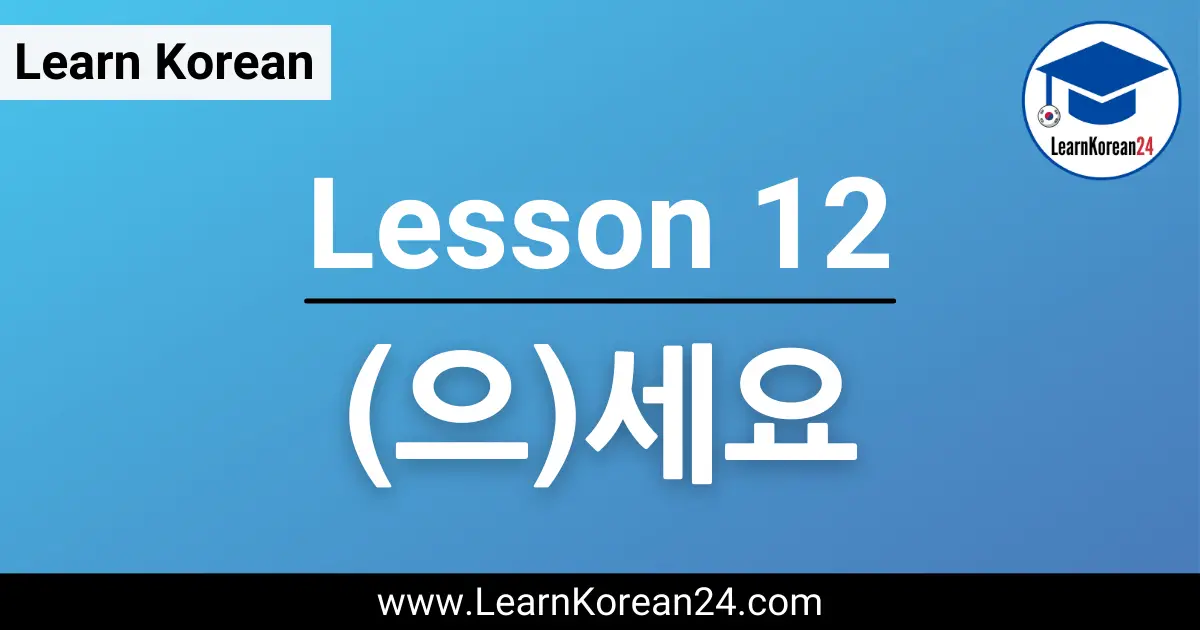Lesson 12: (으)세요
In this lesson, you will how to use the ending (으)세요 [(eu)-se-yo] to make imperative sentences. Imperative sentences are sentences used to give a command, instruction, or to make a request. By the end of this lesson, you will be able to say things like “Please sit on your seat” and “Please give me (something).“
Lesson 12: (으)세요
(으)세요 is a polite imperative ending, and so by attaching this ending to a verb stem, it gives the meaning of ‘please do (something)’. To help you understand what we mean, here are some examples:
가다 [ga-da] = to go
가세요 [ga-se-yo] = please go
앉다 [an-da] = to sit
앉으세요 [an-jeu-se-yo] = please sit
청소하다 [cheong-so-ha-da] = to clean
청소하세요 [cheong-so-ha-se-yo] = please clean
Conjugation Rules
| Conjugation Rule | Examples |
|---|---|
| Verb Stem Ends In Consonant + 으세요 | 읽으세요 (please read) |
| Verb Stem Ends In Vowel + 세요 | 가세요 (please go) |
주세요 (Please Give Me)
A very common imperative form that is used is 주세요 [ju-se-yo]. This is made up of the verb 주다 (to give) plus the imperative ending 세요. This can be used in sentences to ask for things in Korean. For example, “Please give me coffee” (커피 주세요), “Please give me money” (돈 주세요), etc.
Review and Example Sentences
In this lesson, you learned how to attach (으)세요 to a verb to make the imperative form. This can be used to give a command, instruction, or to make a request. Here are some example imperative sentences. Try and make your own by swapping out the verbs or nouns. Check out our list of common Korean verbs and our vocabulary lists to find some words you can use to make your own sentences.
열심히 공부하세요. [yeol-sim-hi gong-bu-ha-se-yo] = Please study hard.
조용히 하세요. [jo-yong-hi ha-se-yo] = Please be quiet.
책을 펴세요. [chae-geul pyeo-se-yo] = Please open your book.
맥주 주세요. [maek-ju ju-se-yo] = Please give me beer.
밥 주세요. [bap ju-se-yo] = Please give me rice.

